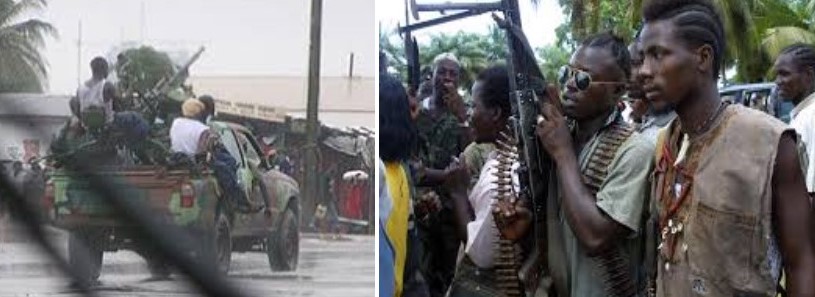Afrobarometer Dispatch No. 978 | Oscar Bloh
Summary
The 2003 Accra Comprehensive Peace Agreement ended Liberia’s civil war, which began in 1989 and was marked by widespread human rights violations and the collapse of state institutions. As part of its transitional justice framework, the agreement called for the establishment of a Truth and Reconciliation Commission (TRC) to promote national healing, prevent future conflict, and recommend actions to address past atrocities.
Established in 2005, the TRC was mandated to investigate and document gross human rights violations committed during the 14-year civil war. In 2009, the TRC recommended the establishment of a war and economic crimes court (Truth and Reconciliation Commission of Liberia, 2009). Liberia is a signatory to international treaties, including the Geneva Conventions, that oppose war crimes and crimes against humanity.
However, successive administrations led by presidents Ellen Johnson Sirleaf and George Weah made little progress toward implementing this recommendation, despite repeated calls for justice by war victims (Wleh, 2024). Analysts argue that political will was lacking, as some individuals named in the TRC report have held or continue to hold elected office.
During a 2024 visit to Liberia, former U.S. Ambassador-at-Large for Global Criminal Justice Beth Van Schaack noted, “There has been no accountability here on the criminal side, or the
civil side, for those who have been most responsible for those abuses” (FrontPage Africa,
2024).
Liberia’s peaceful election and political transition in 2024 brought renewed momentum. In
March, the House of Representatives passed a resolution supporting the establishment of a
war and economic crimes court. This was followed in May by President Joseph Nyumah
Boakai’s Executive Order 131, which created an Office of the War and Economic Crimes
Court to develop a legal and institutional framework for the court, supported by public
consultations and outreach.
Findings from Afrobarometer’s Round 10 survey show that most citizens are aware of the
government’s plan to establish a war and economic crimes court, and most believe the
court will help ensure accountability for Liberians.
Afrobarometer surveys
Afrobarometer is a pan-African, non-partisan survey research network that provides reliable
data on African experiences and evaluations of democracy, governance, and quality of life.
Nine survey rounds in up to 42 countries have been completed since 1999. Round 10 were
launched in January 2024. Afrobarometer’s national partners conduct face-to-face
interviews in the language of the respondent’s choice.
The Afrobarometer team in Liberia, led by the Center for Democratic Governance (CDG),
interviewed a nationally representative sample of 1,200 adult citizens between 30 July and 21
Copyright ©Afrobarometer 2025
1
August 2024. A sample of this size yields country-level results with a margin of error of +/-3
percentage points at a 95% confidence level. Previous surveys were conducted in Liberia in
2008, 2012, 2015, 2018, 2020, and 2022.
Key findings
▪ A majority (58%) of Liberians say it is more important for citizens to be able to hold the
government accountable than for the government to “get things done,” a 9
percentage-point decrease compared to 2022 (67%).
▪ In 2022, seven in 10 Liberians (70%) said the government should establish a war crimes
court.
o But 61% respondents said Liberians need to forget the crimes committed during
the civil war and move on.
▪ In 2024, most Liberians (84%) say they have heard about the new government’s plan to
establish a war and economic crimes court.
▪ More than three-quarters (78%) of citizens think that the war and economic crimes
court will make it possible for the country to hold people accountable for crimes
committed during the civil war.

